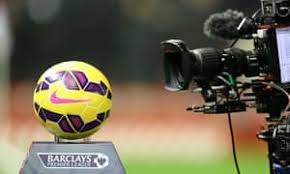By Andrew Warshaw
May 4 – The possibility of the English Premier League season resuming continues to be marred in uncertainty after clubs were told that only “approved neutral venues” will be used to host remaining fixtures.
The ruling was presented at a meeting of the league’s ‘Project Restart’ last Friday and while most clubs are reported to be in favour of finishing the season in this way, significant opposition has emerged on the basis of sporting integrity as well as health concerns.
Of the 20 clubs, 14 have to vote in favour of resuming and while nothing will be decided until the government provides details later this week of a partial lifting of the UK lockdown, completing the campaign with a projected mid-June restart is by no means a given.
The Premier League is reportedly planning to use between eight and 10 stadia, partly to deter fans from congregating outside, but Brighton and Hove Albion, one of those threatened with relegation, went public at the weekend in its opposition to neutral stadiums being used because of Covid-19.
Chief executive Paul Barber accepted that resuming sporting events behind closed doors would require compromise but said that the league’s integrity would be damaged if teams couldn’t play home fixtures at their own grounds.
“We fully appreciate why playing behind closed doors is very likely to be a necessary compromise to play our remaining games while continuing to fully support the government’s efforts to contain the spread of coronavirus,” said Barber.
“But at this critical point in the season playing matches in neutral venues has, in our view, potential to have a material effect on the integrity of the competition.”
Brighton striker Glenn Murray expressed reservations about playing again so soon given the risks of players spreading the coronavirus even though they will be rigorously tested before and after fixtures.
“I understand the public is desperate to get football back, but it is us that are going to be going out there and competing against other teams,” Murray said.
“Everyone is in different situations, I have children at home, I wouldn’t want to jeopardise them, some footballers have newly born children who might be more susceptible to getting the disease. Some are living with elderly parents. It is a really difficult situation to agree on.”
What is clear amidst all the uncertainty is that there is growing division. Players may well refuse to play if they feel unsafe in the midst of the pandemic. Critics of any resumption make the point that health in the community has to take absolute priority while the counter-argument is that highly-paid Premier League stars have a responsibility to start performing again if their safety is assured.
Crystal Palace chairman Steve Parish says a resumption must happen or the “game might never fully recover”, not least because of potential legal challenges.
“I believe we can and should continue however imperfect the other elements: neutral venues empty stadia, etc,” tweeted Parish. “If we can’t make it work then I fear for next season. The game might never fully recover.”
Government rulings have already led to the French and Dutch league seasons ending last week, the latter causing widespread resentment.
“I want to crown Liverpool champions and give every other club a fair crack at the best league position they can achieve,” Parish said. “I certainly don’t want to have difficult conversations about curtailing, voiding and points per game.
“The ramifications of each are complex and could involve legal challenges that run on for months, if not years.”
At the heart of the debate, as ever, is money. Unlike other leagues, the Premier League fears losses of more than £1 billion of broadcasting revenue if the season is not completed.
Some Premier League players have already returned to strictly monitored individual training and players in Spain and Italy are about to do the same.
The plan in England, if the government gives the green light, is for matches to start in June but what has just happened in Germany, way ahead of the curve in terms of dealing with Covid-19 in western Europe, is a classic example of what can go wrong.
The German top flight is hoping to resume this month but those plans have been jeopardised by three positive tests for coronavirus last week at Cologne, reportedly including two players.
Cologne said Sunday that players will only resume training after two consecutive negative COVID-19 tests, ruling out the need for the entire squad and coaching staff to go into quarantine. But it illustrates the difficulties of trying to plan ahead amid the unpredictability of the spread of the virus.
Contact the writer of this story at moc.l1714134816labto1714134816ofdlr1714134816owedi1714134816sni@w1714134816ahsra1714134816w.wer1714134816dna1714134816

